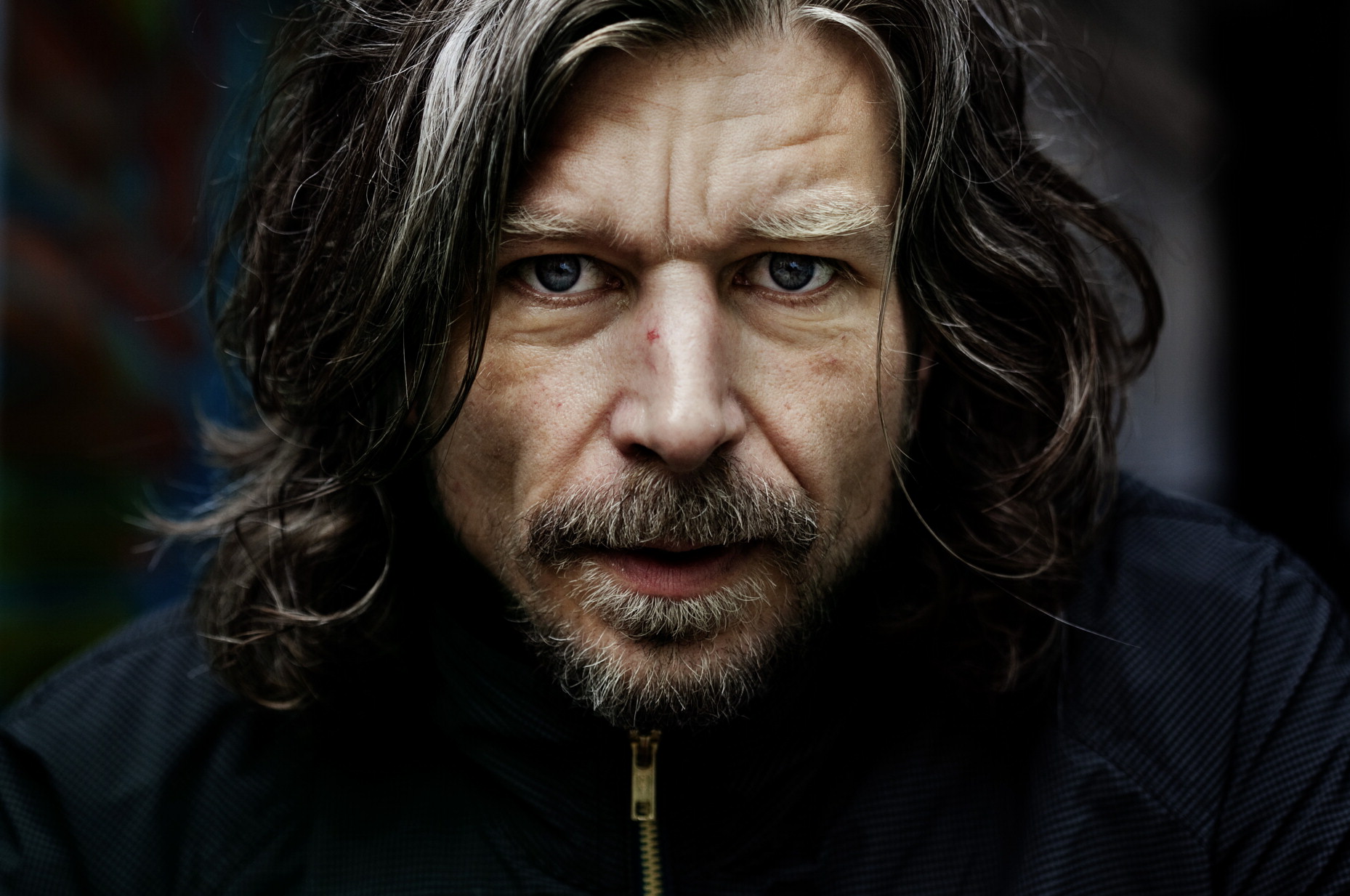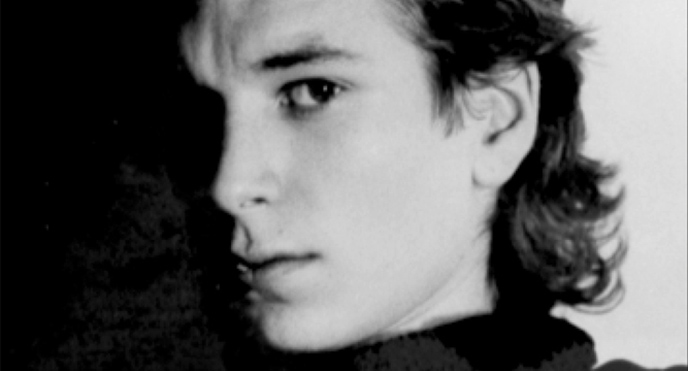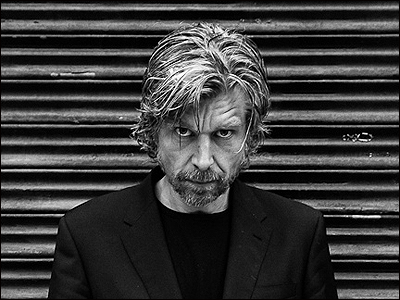My Struggle, volume 1: Dan, June 17
Minneapolis, MN
Dear Omari, Diana, and Cecily,
Time flies. A cliché heard often enough. My dad, whenever occasion permits, uses it as a refrain, always has, says it with mild astonishment as if he can't get over it, and, because it leaves nothing really to say in reply, a melancholic silence tends to fall. Because he's my dad, I get embarrassed—by the banality, and, worse, by the feeling that, despite his repetition, despite the passing of time, we learn nothing about death.
Knausgaard's struggle, I think, is to slow down time. Already, in the first few pages, he notes that "time races through our lives, the days pass by in a flash and before we know what is happening we are forty, fifty, sixty" (11). I can't not hear my dad's voice saying this. K comes to see his own father as "a peer through whose life time is blowing and unremittingly sweeping large chunks of meaning along with it" (11). How does he hope to halt this inexorability? Cecily got me thinking about form. K is, indeed, obsessed with form. This, he says, is literature's "sole law: everything has to submit to form" (197). Theme, style, they're nothing without the right form. Here's my thought: what looks like My Struggle's fanatical documentation is, in fact, as it's billed—and with this I'm building on Omari's insights—rigorously fiction, and K's form is a gambit to stop time.
At dinner a couple weeks ago, a friend told me about the "proportional theory" of time. When we are four, a month is 1/48th—more than two percent—of our life. But by the time we become, like me, thirty-three, a month is a mere 1/396th—or one quarter of one percent—of our life. Because we experience time relative to how much of it we've lived, according to this theory, a month feels about eight times longer to a four-year-old than to me.
K's theory is a little different. For him, the speed of time has to do with our understanding of the world.
Understanding the world requires you to take a certain distance from it. Things that are too small to see with the naked eye, such as molecules and atoms, we magnify. Things that are too large, such as cloud formations, river deltas, constellations, we reduce. At length we bring it within the scope of our senses and we stabilize it with a fixer. When it has been fixed we call it knowledge. Throughout our childhood and teenage years, we strive to attain the correct distance to objects and phenomena. We read, we learn, we experience, we make adjustments. Then one day we reach the point where all the necessary distances have been set, all the necessary systems have been put in place. This is when time begins to pick up speed. (11)
It's all about scale. By domesticating diverse phenomena, by bringing them all to human scale, we reduce the resistance to understanding, the friction, that K thinks slows down time. We become habituated to the world. I've been thinking about Cecily's notion that "anything that changes your habits is probably good for you"—and I've come to believe it's at the heart of K's form. His meticulous descriptions of rolling a cigarette, or the sound of a VHS rewinding, or the weather, and his abrupt scalar shifts to the geometric patterns of cities or the life-cycle of delivery rooms or funeral parlors are bids to break our habitual understanding of the world and thereby slow down time. In this, K, as both Diana and K himself point out, is an inheritor of modernism: defamiliarize, make it new.
For K, this means attempting to see with the eyes of a child. The sole difference, he says, "between a child's reality and an adult's" is that, for an adult, the world is "no longer laden with meaning" (361-362). My Struggle is a monstrous attempt to make the little bits of experience signify again. Adulthood is the enemy. The novel is an anti-bildungsroman, a rejection of bildung, a refusal of the bourgeois life that K disavows as he lives it—an epic case of bad faith.
Consider lutefisk—which, if you don't know, is cod that's been soaked in lye until it takes on the consistency of Jell-O, which, thanks to the Swedish side of my family, I grew up eating, bathing it in melted butter. "Lutefisk lunches with friends," writes K, in response to Yngve's social life, "well, that wasn't a world I inhabited. Not because I couldn't force down lutefisk but because I wasn't invited to that kind gathering. Why not, I had no idea. I didn't care anymore anyway" (377). Lutefisk lunches, for K, mean assimilation into a middle class where everything's calibrated to adult human scale and time and meaning shear away. In his petulance—I didn't care—we can hear his ambivalence, the fact that he does desire the adult sociality he spends his novel dismantling.K's often lauded for his authenticity, his sincerity. James Wood writes that K exhibits "a simplicity, an openness, and an innocence in his relation to life, and thus in his relation to the reader. Where many contemporary writers would reflexively turn to irony, Knausgaard is intense and utterly honest." Everything about this is wrong. Nothing could be more suffused with artifice than K's fantastically prodigious memory. His transparency is an illusion. Nor, as Omari noted, does he try to hide it: "Ask me what I did three days ago and I can't remember" (30); "I remembered hardly anything from my childhood" (191); "I usually forgot almost everything people, however close they were, said to me" (434). Every intricately transcribed memory is an invention. His apparent simplicity, openness, innocence, and honesty have nothing to do with mimesis and everything to do with form.
According to K, "For several years I had tried to write about my father, but had gotten nowhere, probably because the subject was too close to my life, and thus not so easy to force into another form, which of course is a prerequisite for literature" (197). So when, now, he writes about his father, we have to assume he has distanced him from his life, forced him into another form, that he is doing what he says "all writers try to do": "combat fiction with fiction" (222). He is striving for utopia—which he says "literature has always been related to"—a utopia where we achieve the stoppage of time through the artifice of fiction, fantastically dwelling in an invented past. If, as I hear, he has infuriated everyone in his life with his writing, I think it has less to do, exactly, with misrepresentation, and more to do with the fact of his imagination, as with his and Yngve's made up interview with Kjartan Fløgstad.
Years ago, when I worked as an outdoor educator, taking kids into the woods to teach them about trees and animals, I would have them read Borges' story "Funes the Memorious." The point was to inspire them to be close observers of the natural world, which was ironic, and my reading of the story terrible, because Funes, who has perfect perception and total recall, becomes incapacitated by his gift. He dies at the age of twenty-one "of congestion of the lungs." The point is that we need our perception and memory to fail, according to Borges, in order to think in abstractions, beyond nominalism.
K comes nowhere close to Funes as a memorialist (we learn nothing, for instance, not even the name, of "a girlfriend with whom [K] had never been in love, not really," although they'd been together for four years), but his mode of thought, his form, his struggle inhibits the recognition of itself as fiction, seduces me into a feverish desire for reality. If this is how K experiences the world, how much am I missing, captive to time's flight? Descriptions like these—"the glowing ash fell like tiny stars into the garden" (432); "I spread butter over the toast, it melted at once and filled the tiny pores on the surface" (212)—fill me with longing. "Nostalgia," writes K, "is not only shameless, it is also treacherous" (203). Despite his hatred of sentimentality, K's form is ultimately just this, nostalgic realism. His project is to reenchant a past that never was.
I read him in these Minneapolis coffee shops and dive bars and recede ever deeper into myself, indulging in the pleasant narcissism that keeps me from people, from politics, from anything but a self-satisfied interiority. Following the wormholes from K's fiction into my own mind feels good in that special way that nudging a loose tooth with my tongue once did, a warm dark personal pleasure. The specter of death, where K begins and ends, licenses these detours into the solipsistic channels of memory, of invention. The tension between death and the deceleration of time is, I think, what propels My Struggle. My friend Nathan put it better than I could: "K's 'gambit to stop time' does at times seem like a kind of death drive: kill time, kill memory, kill dad so that life can finally take form, so that it can finally mean anything at all. The big risk, which I think K is aware of, is that it won't mean anything. But then at least he's sold a lot of books."
I wanted to write more about death, my fear of it, K's final reconciliation. But then, as my old man always says, time flies.Yours, fleetingly,
Dan
ALSO IN THIS SERIES:
The Slow Burn, v.2: An Introduction
My Struggle, vol. 1: Cecily, June 6
My Struggle, vol. 1: Diana, June 9
My Struggle, vol. 1: Omari, June 14
My Struggle, vol. 1: Dan, June 17
My Struggle, vol. 2: Omari, June 24
My Struggle, vol. 2: Cecily, July 1
My Struggle, vol. 2: Sarah Chihaya, July 5
My Struggle, vol. 2: Dan, July 12
My Struggle, vol. 2: Diana, July 16
My Struggle, vol. 2: Jess Arndt, July 18
My Struggle, vol. 3: Omari, July 25
My Struggle, vol. 3: Ari M. Brostoff, August 1
My Struggle, vol. 3: Dan, August 4
My Struggle, vol. 3: Jacob Brogan, August 8
My Struggle, vol. 3: Diana, August 12
My Struggle, vol. 4: Katherine Hill, August 25
My Struggle, vol. 4: Omari, September 1
My Struggle, vol. 4: Dan, September 2
My Struggle, vol. 4: Diana, September 15
My Struggle, vol. 5: Omari, September 27
My Struggle, vol. 5: Diana, October 3
My Struggle, vol. 5: Dan, October 13





